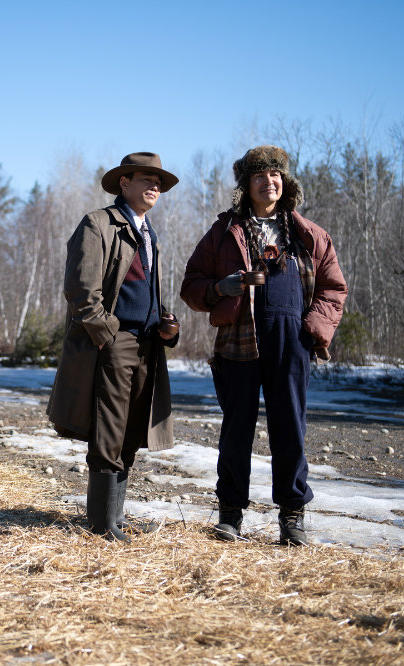Director’s Statement
Upon reading Kenneth T Williams’ one woman play Café Daughter, I immediately felt a strong attachment to the character of Yvette Wong, I wanted to protect her. Yvette is a young girl from a bi-racial (Chinese and Cree) background who is subjected to the accepted racial attitudes of the time. Her teachers and classmates look at her as if she is never going to achieve her goal of becoming a doctor, not only because she is a girl, but because she belongs to a racial minority in Canada. The idea of Café Daughter being made into a film came to me by invitation from Williams and Keith Lock to direct a film version of Williams’ play.
Café Daughter is an inspiring story of an Indigenous Chinese girl who succeeds against all the unfair obstacles in front of her, in a world that doesn’t see her power. This is a story that is not often told and one that we don’t see enough on screen. It comes from a period of time in Canada where people from minority groups were seen as inferior, when segregation and hate crimes were rampant. People of colour had to work harder, longer and persevere, looking to the future with determination against all odds.
The inspiration for Café Daughter, the play and the film, is the life and experiences of Lillian Eva Quan Dyck, OC; a Chinese and Cree neuroscientist, scholar, feminist, senator and advocate for Indigenous rights. Café Daughter is based on the young years of her life and what she endured before she went forward to become a celebrated activist and doctor. Lillian is an inspiration to all who fight on a daily basis for justice, for those who persevere and advocate for themselves. I am proud that Café Daughter was able to capture just some of her amazing story. It’s a special film. I got to know Lillian and her brother Winston Quan through the filmmaking process, they contributed to the story in a rich and truthful way and were great to talk to. I felt like I was invited in and looked at the story in a personal and familiar setting.
The decision to bring Lillian’s story and Kenneth’s play to the screen was an easy one, made even more fulfilling by the team we were able to bring together. The cast of Café Daughter was a dream cast. The actors auditioned via zoom, but when we had them all together, I was convinced of their energy and skills. The film was blessed to have such great talent. They were loving and dedicated to being a part of the film and I could feel their devotion on set. Like the love in the family at the heart of the story, their love and dedication fed the production. I am grateful for that love. Working with the child actors was also a wonderful experience, they were professional and wise beyond their years. Violah and Evan created a great friendship between themselves. I felt like they were siblings. Their chemistry was lovely. We also had so much support from our crew including producer Amos Adetuyi who worked relentlessly and tirelessly getting the funds to make this film.
We shot the film in Sudbury, in and near Anishinaabe territory. It was in April and there is always a chance of snow, rain and anything else that might come along, but everything worked out for us. Some of the Indigenous crew came from the Sudbury area and having them on set made a huge difference. They knew they were working on something special and performed at 100%.
Before we started shooting the film, we had an Anishinaabe elder from the Atikameksheng Anishnawbek First Nation, Julia Pegahmagabow and Chinese advisor Dr. Hu Cheu came to set and offered prayers. It was a nice way to start working and I feel this is so important as it sets a tone and makes everyone invested in what we were doing.
The most important theme to me throughout Café Daughter is love; the love within the family and how it makes them stronger and holds them together.
~ Shelley Niro
The Horseknife and the Wong family. Photo courtesy of Freddie Films.























